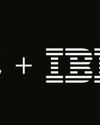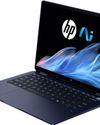
When the American software investment firm Thoma Bravo completed a whopping $5.3 billion takeover of Cambridge-based security firm Darktrace in October, it raised a few eyebrows.
Darktrace-co-founded by the entrepreneur Mike Lynch, who died when his yacht sank in a storm off the coast of Sicily in August - was accused of financial irregularities, similar to those that dogged Lynch's Autonomy. Booking hardware sales as software and using resellers to inflate sales figures were only two of the allegations levelled at Darktrace (tinyurl.com/ 363darktrace), all of which the company denied.
Then its CEO resigned in the middle of the takeover talks, only to become Keir Starmer's new investment minister a few weeks later.
Thoma Bravo will now take the company private, perhaps hoping to take Darktrace out of the spotlight.
But many questions hang over the security firm.
Out of Autonomy Darktrace was trumpeting the miraculous powers of artificial intelligence long before the current AI bubble.
Established in Cambridge in 2013, the company claimed to have "pioneered a proactive, Al-native approach to security" that "defends against unknown threats using AI that learns from your business in real-time".
The company was set up by Invoke Capital, a venture capital fund founded by Mike Lynch, using some of the proceeds from Autonomy's $11.7 billion sale to HewlettPackard two years earlier Lynch wasn't the only link between Autonomy and Darktrace. Many of Darktrace's senior management had previously worked for Autonomy (see box below), including the former CEO Poppy Gustafsson (now a government minister), chief technology officer Jack Stockdale, and chief strategy officer Nicole Eagan. In all, around 40 employees migrated from Autonomy to Darktrace, according to research conducted by investment fund ShadowFall (tinyurl.com/363shadowfall).
This story is from the {{IssueName}} edition of {{MagazineName}}.
Start your 7-day Magzter GOLD free trial to access thousands of curated premium stories, and 9,000+ magazines and newspapers.
Already a subscriber ? Sign In
This story is from the {{IssueName}} edition of {{MagazineName}}.
Start your 7-day Magzter GOLD free trial to access thousands of curated premium stories, and 9,000+ magazines and newspapers.
Already a subscriber? Sign In

Apple's big blues
Apple once joined forces with IBM to create a new operating system that could easily have destroyed the Mac. David Crookes explains what happened

Printers for PROS
We put 14 inkjet and laser printers through their paces in our exhaustive tests for quality and speed so that you can buy with confidence

Raspberry Pi 500
A brilliant update to the Pi 400, this \"all in one\" keyboard computer makes the most of the Raspberry Pi 5's power

Dell XPS 13 (Core Ultra 200V)
Intel's second-generation Core Ultra 200V chips prove an excellent fit for the ultra-compact XPS 13

AI agents: putting AI to work
This year is set to be all about Al agents. Nicole Kobie reveals what this means and whether the backlash is beginning before Al agents are even here

HP OmniBook Ultra Flip
A stylish 2-in-1 packed with the latest technology, and the local AI tool shows signs of promise, too

EMULATION MAKING WINDOWS ON ARM GREAT AGAIN
HOW DO THE LATEST LAPTOPS AND MACS RUN INTEL SOFTWARE ON THEIR ARM PROCESSORS? DARIEN GRAHAM-SMITH EXPLORES THE WONDERFUL WORLD OF EMULATION

DAVINCI RESOLVE
Edit and render videos like a pro. Nik Rawlinson shows you how to hit the ground running in the powerful free editing suite

WINDOWS in 2025
With the new year bringing the curtain down on the most used version of Windows, Barry Collins explores where consumers and businesses should head next

4 surprising things we learned from IBM Research
While AI and quantum computing were the two big themes at this year's IBM Research Europe media event, Tim Danton reveals there was also one surprise lurking in the lab